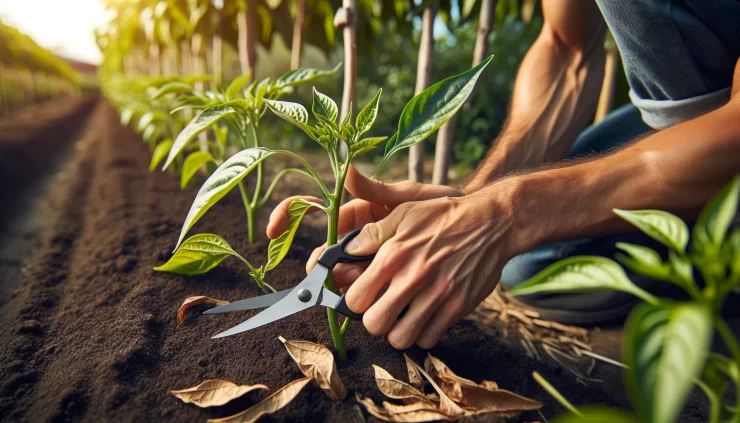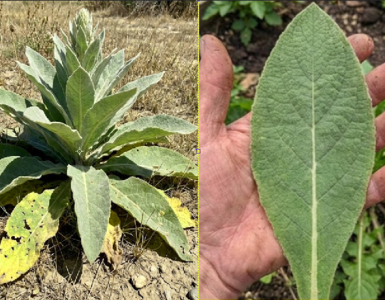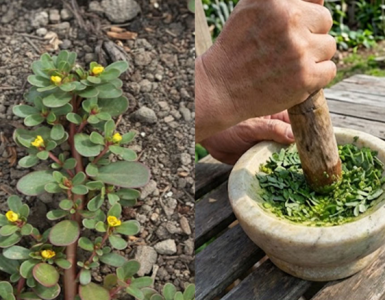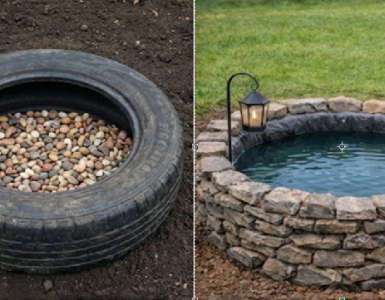Pepper plants are a favorite among gardeners for their vibrant colors and versatile culinary uses. To maximize your pepper harvest and ensure healthy, resilient plants, a simple yet effective technique is to cut the dry leaves a few days after planting. This practice can significantly boost the health and productivity of your pepper plants throughout the summer.
Why Cut Dry Leaves?
Cutting dry leaves from pepper plants has several benefits:
Encourages New Growth: Removing dry and dead leaves allows the plant to focus its energy on new, healthy growth.
Prevents Disease: Dry leaves can harbor pests and diseases. Removing them reduces the risk of these problems spreading to healthy parts of the plant.
Improves Air Circulation: Pruning enhances air circulation around the plant, which helps to prevent fungal infections and promotes healthier growth.
Enhances Sunlight Penetration: By cutting away dry leaves, more sunlight can reach the lower parts of the plant, encouraging even growth and fruit production.
How to Prune Pepper Plants
Here are the steps to effectively prune your pepper plants:
Identify Dry Leaves:
A few days after planting, inspect your pepper plants for any dry, yellowed, or damaged leaves. These leaves are typically found at the base of the plant or on older growth.
Use Clean Tools:
Always use clean, sharp scissors or pruning shears to cut the leaves. This helps to prevent the spread of disease.
Cut at the Base:
Cut the dry leaves close to the stem but avoid damaging the main stem or other healthy leaves.
Dispose of Pruned Leaves:
Remove the cut leaves from the garden area to prevent any potential spread of disease or pests.
Additional Tips for Healthy Pepper Plants
Watering: Peppers need consistent moisture but do not like to be waterlogged. Water them deeply and regularly, especially during dry spells.
Mulching: Apply a layer of mulch around the base of the plants to retain soil moisture, regulate temperature, and suppress weeds.
Fertilizing: Use a balanced fertilizer or compost to provide essential nutrients. Fertilize at planting time and periodically throughout the growing season.
Staking: As pepper plants grow taller, they may need support. Use stakes or cages to keep the plants upright and prevent them from falling over under the weight of the fruit.
The Benefits of Resilient Pepper Plants
By cutting dry leaves and following these care tips, your pepper plants will grow more resilient. Resilient plants are better able to withstand environmental stressors such as heat, drought, and pests. They are also more likely to produce an abundant harvest throughout the summer.
Healthy, well-maintained pepper plants will reward you with a bountiful supply of peppers, perfect for salads, cooking, and preserving. Whether you’re growing bell peppers, hot peppers, or sweet varieties, proper pruning and care will ensure that your plants thrive and produce plentifully.
Cutting the dry leaves a few days after planting your peppers is a simple yet powerful technique to enhance plant health and productivity. Combined with regular watering, fertilizing, and other good gardening practices, this method will help you grow resilient pepper plants that produce an abundance of fruit throughout the summer. Embrace this gardening tip, and enjoy a summer filled with the vibrant flavors and colors of homegrown peppers.






Add comment